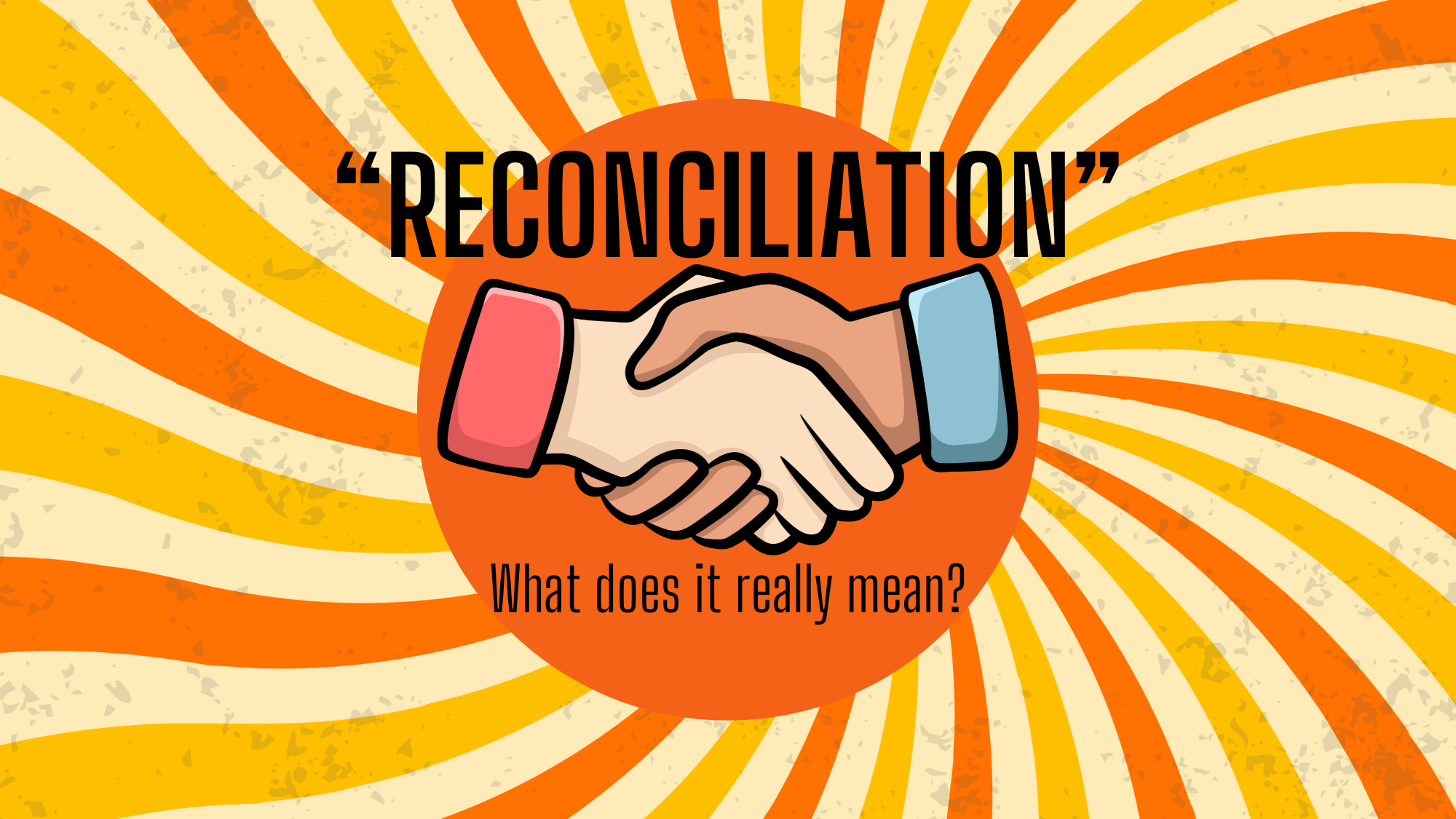
If I started talking to you about the “Prime Directive,” would you know what I was talking about? Maybe so if you have watched a few episodes of Star Trek. But most likely, this jargon is reserved for the nerdiest of nerds. Sometimes, jargon is used in inner circles that we understand, but those who are on the outside listening in might struggle to know what we are talking about. The same happens in theological discussions.
Sometimes, even though a word is biblical, we can use a term so freely that those who are on the outside or those who have barely stepped into the circle of Christianity struggle to understand what we are talking about. Now, I don’t think we should completely change our terminology. We should keep using biblical terms, and we should call biblical things by biblical terms. However, I do think every so often we need to make sure people understand what we are talking about when we use such terms. Let me give you an example.
The Bible uses the word “reconciliation” to describe restoration and unity between two estranged parties. All through the Bible, there are references to reconciliation in both the way mankind comes back into a healthy relationship with God and the way one person comes back into a healthy relationship with another person. The act of reconciliation is defined by grace, forgiveness, empathy, humility, and love. It focuses on repentance, redemption, and restoration. A few years ago, I preached a three-part sermon series on all three of those words, hoping to help and encourage my audience to reconcile themselves back into a good relationship with each other and with God. The term might be a technical biblical term we don’t often use in everyday vocabulary. However, the action is simple enough that we certainly should understand. The action is this: If you’re not getting along with someone, make things right and mend the relationship so that it’s like it was before there were any problems. If your relationship with God is estranged, return to Him and make things right again. If your relationship with your sister, Betty Lou Bluhare, is estranged, go back to her and make things right again. Now, that should be something we all understand.
For your reading pleasure, here are a few passages that help us understand what reconciliation is all about:
First, read Romans 5 to learn how God is the reconciler in our relationship with Him. Here’s a sample, “But God demonstrates His own love toward us, in that while we were yet sinners, Christ died for us. Much more then, having now been justified by His blood, we shall be saved from the wrath of God through Him. For if while we were enemies we were reconciled to God through the death of His Son, much more, having been reconciled, we shall be saved by His life. And not only this, but we also exult in God through our Lord Jesus Christ, through whom we have now received the reconciliation” (Romans 5:8-10).
Second, read Matthew 5:24, where Jesus exhorts us to restore a broken relationship with someone else before we come before God. “Therefore if you are presenting your offering at the altar, and there remember that your brother has something against you, leave your offering there before the altar and go; first be reconciled to your brother, and then come and present your offering.” See also Ephesians 2, where Paul explains how there was a dividing wall of hostility between the Jews and Gentiles in their past, but now, if they are both reconciled to God, then they are by default reconciled together (Ephesians 2:14-16). The understanding of both of these passages is this: Even though in our past we have been estranged if we are going to be close to God, working and serving in His Kingdom together, then we must get along and be reconciled together.
So, the next time you use the term “reconciliation” in discussions with others, remember this: It’s not just about making things right again. It’s about restoring harmony and unity and experiencing the joy that comes from being reconciled to God and to each other. Let’s strive for reconciliation in our relationships and see the transformative power it can bring.
For the Lord,
Alex Mills

